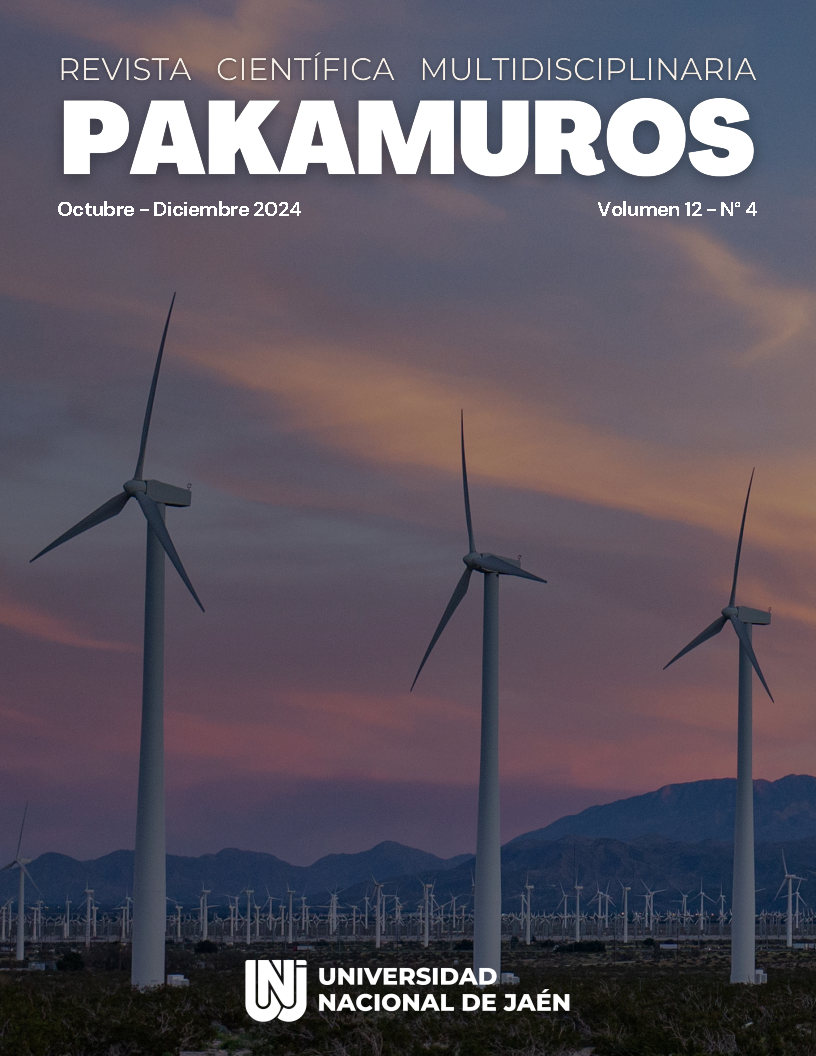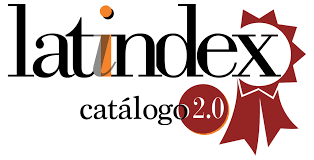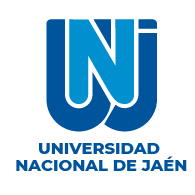Impact of Emerging Technologies on Educational Business Models: A Quantitative Approach
DOI:
https://doi.org/10.37787/0p8r6z39Keywords:
Digital transformation, emerging technologies, higher education, business models, educational innovation.Abstract
The adoption of technologies such as artificial intelligence, augmented reality, and digital learning platforms has been a key factor in driving this shift. The study found a positive correlation between the use of emerging technologies and improvements in global competitiveness and administrative efficiency. However, challenges like the digital divide and resistance to change need to be addressed to fully leverage the benefits of digital transformation.
References
Adarkwah, M. A. (2024). GENAI-Infused Adult Learning in the Digital Era: A Conceptual Framework for Higher Education. Adult Learning. https://doi.org/10.1177/10451595241271161
Alvarez-Icaza, I., y Huerta, O. (2024). Augmented intelligence for open education: bridging the digital gap with inclusive design methods. Frontiers in Education, 9. https://doi.org/10.3389/feduc.2024.1337932
Artsin, M., Luy, Z., Bakirci, F., Karatas, S., Caliskan, N. Y., y Sanli, M. (2024). Bibliometric analysis of social media studies within educational research. Turkish Online Journal of Distance Education, 25(4), 162–184. https://doi.org/10.17718/tojde.1389050
Chen, Y. (2024). Research on the impact of the digital economy on the level of industrial structure: An empirical study of 280 cities in China. PLoS ONE, 19(3), e0298343. https://doi.org/10.1371/journal.pone.0298343
Digital Transformation of Legal Education: Problems, risks and Prospects. (2021). European Journal of Contemporary Education, 10(2). https://doi.org/10.13187/ejced.2021.2.297
Fadlelmula, F. K., y Qadhi, S. M. (2024). A systematic review of research on artificial intelligence in higher education: Practice, gaps, and future directions in the GCC. Journal of University Teaching and Learning Practice, 21(06). https://doi.org/10.53761/pswgbw82
Fernández, A., Gómez, B., Binjaku, K., y Meçe, E. K. (2023). Digital transformation initiatives in higher education institutions: A multivocal literature review. Education and Information Technologies, 28(10), 12351–12382. https://doi.org/10.1007/s10639-022-11544-0
Gallastegui, L. M. G., y Forradellas, R. R. (2024). Optimization of the educational experience in higher education using predictive artificial intelligence models. Revista De Gestão Social E Ambiental, 18(5), e07111. https://doi.org/10.24857/rgsa.v18n5-104
George, B., y Wooden, O. (2023). Managing the strategic transformation of higher education through artificial intelligence. Administrative Sciences, 13(9), 196. https://doi.org/10.3390/admsci13090196
Kabashkin, I., Misnevs, B., y Puptsau, A. (2023). Transformation of the university in the age of artificial intelligence: Models and competences. Transport and Telecommunication Journal, 24(3), 209–216. https://doi.org/10.2478/ttj-2023-0017
Katsamakas, E., Pavlov, O. V., y Saklad, R. (2024). Artificial intelligence and the transformation of higher education institutions: A systems approach. Sustainability, 16(14), 6118. https://doi.org/10.3390/su16146118
Li, Y., y Wu, F. (2023). Design and application research of embedded voice teaching system based on cloud computing. Wireless Communications and Mobile Computing, 2023, 1–10. https://doi.org/10.1155/2023/7873715
Loukatos, D., Kondoyanni, M., Kyrtopoulos, I., y Arvanitis, K. G. (2022). Enhanced robots as tools for assisting agricultural engineering students’ development. Electronics, 11(5), 755. https://doi.org/10.3390/electronics11050755
Mah, D., y Groß, N. (2024). Artificial intelligence in higher education: exploring faculty use, self-efficacy, distinct profiles, and professional development needs. International Journal of Educational Technology in Higher Education, 21(1). https://doi.org/10.1186/s41239-024-00490-1
Perla, L., y Vinci, V. (2024). Rethinking assessment in the digital era: Designing a pilot study on hybridization in higher education. Qwerty, 19(1). https://doi.org/10.30557/qw000079
Pham, T., Nguyen, T. B., Ha, S., y Ngoc, N. T. N. (2023). Digital transformation in engineering education: Exploring the potential of AI-assisted learning. Australasian Journal of Educational Technology, 39(5), 1–19. https://doi.org/10.14742/ajet.8825
Pérez-Rodríguez, R., Lorenzo-Martin, R., Trinchet-Varela, C. A., Simeón-Monet, R. E., Miranda, J., Cortés, D., y Molina, A. (2022). Integrating challenge-based-learning, project-based-learning, and computer-aided technologies into industrial engineering teaching: Towards a sustainable development framework. Integration of Education, 26(2), 198–215. https://doi.org/10.15507/1991-9468.107.026.202202.198-215
Quy, V. K., Thanh, B. T., Chehri, A., Linh, D. M., y Tuan, D. A. (2023). AI and digital transformation in higher education: Vision and approach of a specific university in Vietnam. Sustainability, 15(14), 11093. https://doi.org/10.3390/su151411093
Rahiman, H. U., y Kodikal, R. (2023). Revolutionizing education: Artificial intelligence empowered learning in higher education. Cogent Education, 11(1). https://doi.org/10.1080/2331186x.2023.2293431
Shi, S. (2024). Research on the innovation path of music education in higher vocational colleges and universities in the context of the new era. Applied Mathematics and Nonlinear Sciences, 9(1). https://doi.org/10.2478/amns-2024-0727
Shenkoya, T., y Kim, E. (2023). Sustainability in higher education: Digital transformation of the Fourth Industrial Revolution and its impact on open knowledge. Sustainability, 15(3), 2473. https://doi.org/10.3390/su15032473
Sydorenko, V. V., Akhnovska, I. O., Smirnov, S., Verbovskyi, I., y Melnychuk, O. V. (2024). Improvement of higher education: How to bridge the digital divide during the transformation? Journal of Education and Learning (EduLearn), 18(3), 993–1006. https://doi.org/10.11591/edulearn.v18i3.21078
Vogler, A., Vu, B., Then, M., y Hemmje, M. (2024). Towards a QBLM-based qualification-management methodology supporting human-resource management and development. Information, 15(10), 600. https://doi.org/10.3390/info15100600
Wang, Y. (2023). Artificial intelligence technologies in college English translation teaching. Journal of Psycholinguistic Research, 52(5), 1525–1544. https://doi.org/10.1007/s10936-023-09960-5
Zhao, Y., Li, Y., Xiao, Y., Chang, H., y Liu, B. (2024). Factors influencing the acceptance of ChatGPT in higher education: An integrated model with PLS-SEM and FSQCA approach. SAGE Open, 14(4). https://doi.org/10.1177/21582440241289835
Published
Data Availability Statement
Los datos generados y analizados durante este estudio están disponibles bajo solicitud razonable. Los lectores interesados pueden ponerse en contacto con el autor principal a través del correo electrónico: ccobosg@certus.edu.pe para obtener acceso a los datos.
Issue
Section
License
Copyright (c) 2024 Pakamuros Scientific Journal

This work is licensed under a Creative Commons Attribution-NonCommercial 4.0 International License.













